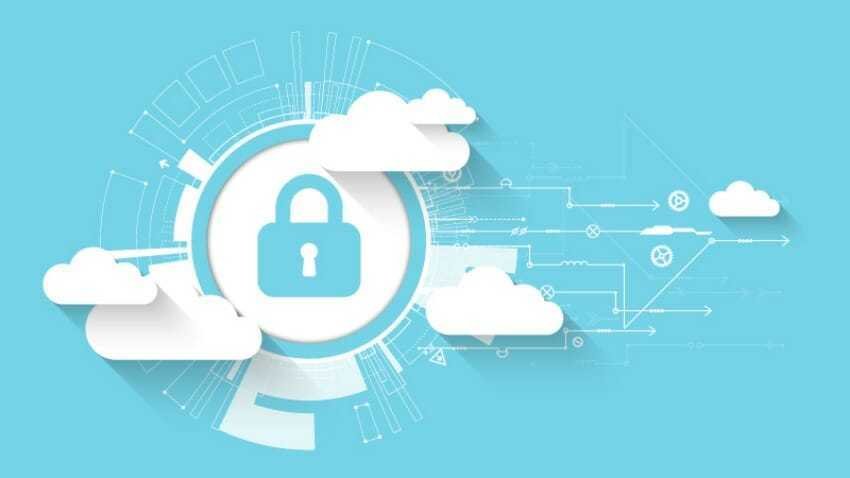Cloud: There are some who avoid putting their data in the cloud, saying: "Cloud storage is dangerous", or "there is no privacy in the Cloud." Of course there is always the question: "What about hackers?"
Meanwhile, there are others who send GBs data to Dropbox. There are tasks that are made much easier by Cloud.
Finally, are not those who see no problem using the cloud, are they right? Are the first to be just paranoid?
Below we will see some good reasons that can lead you to avoid storing data on the web, although it is really hard to leave the convenience of backing up and accessing our files from many devices.
But do we give much more than we get when we use the cloud?
What is "Cloud"?
Cloud is a very controversial term. In a broad sense, it means a web service running on a server. But the same definition could apply to almost any website. But we are talking about many modern web services that have emerged in the last decade. They are sites that work more like applications running on your computer, without running on your computer, but somewhere in a "cloud" of computers located somewhere else.
Η λίστα υπηρεσιών Cloud συμπεριλαμβάνει παρόχους αποθήκευσης όπως το Dropbox και το Box, συγκεκριμένες εναλλακτικές λύσεις όπως τις Google Photos και iPhotos, κοινωνικά δίκτυα όπως το Facebook και το Twitter, εφαρμογές ιστού όπως το Google Drive και το Office 365, υπηρεσίες streaming όπως το Netflix και το Spotify.
So the problem with all the above services is that they are online, and that makes you depend on other computers.
Let's see what you have to think very seriously about every Cloud service:
Every energy leaves you a (?) Trace
Nothing on the internet is anonymous. To connect to the web, we use an IP address. Every website you visit can see this IP address. And it's not just that.
We are talking about a lot of information and we have not yet started talking about cloud services. So many websites monitor and record this information using cookies. Thanks to cookies, they can "read" which places you have visited on the web even if you consider that you are "circulating" anonymously. By creating a single account (something that almost every Cloud service requires), your web traces grow, get nicknames, passwords and more.
Nothing you do is private
To show you a website, one server it will need to receive certain information from you, and this information is not supposed to be stored.
When you create an account, things are changing. The entire account creation system has been built to maintain data. These data can be all the messages you've sent, the music you've heard, your credit card information, or your purchase history.
Of course in case you are "moving" offline, no one will follow a letter you have sent in the mail. A radio station may be able to "see" approximately how many listeners it has, but it does not know more data. When you pay cash you will get a receipt, which is anonymous. (Credit cards, on the other hand, provide information, whether you use them online or offline).
Online now, an email address or a user's name may be enough to associate two different accounts. Cookies or web browsing history (which some browsers synchronize online) can testify to your identity. You may be surprised to find out how easy it is to know who you are and what you are doing.
We all have a data profile
The information we have on the internet is bought and sold regularly. Facebook, for example, not only uses the data it collects from the use of its services or cookies to track us on the web. The company also buys information to fill the gaps it has for us. This is because the goal of each business is to know as much as possible about its customers. So he is able to better target.
Of course, this information is not only about the business that collects it and it is not only collected by businesses. Law enforcement, intelligence, hackers and many others are looking for information through legitimate or illegal routes to learn more about us. Last year, we saw the use of Facebook's business strategy to target voters and manipulate the US elections.
Facebook, Twitter, Amazon, Google or Dropbox store different details for each of us. One who has access to all this information can understand where we live, where we go, who we like, what we eat, what we buy, what credit cards we use and when.
Of course there are many who have no problem if Google knows every application they have installed on phone them, but I don't know if they would be happy if something like that happened with the tax office.
The Terms of Service may change
With the world we face face to face, we expect others to keep their word. With online companies the relationship is impersonal, and we only have the terms of service, which all state that the company reserves the right to change them at any time.
That would not be right in our personal relationships. If you sign a contract, you know what to expect. The same applies when you rent a car, pay for repairs or hire someone.
This expectation disappears with the boot of the computer. The end user usage terms that accompany most of the non-free apps and service terms required by any online service are not static. They can change at any time.
Cloud: The future is uncertain
Do you use your smartphone as a camera? Are you automatically uploading your photos to Google Photos?
Google is an advertising company. It provides free services in exchange for collecting data that help it better understand the end user's habits in order to crawl the appropriate ads. But the kind of data it collects has nothing to do with the information a magazine has, that knows only the address of our home.
Google knows every search we visit, every site we visit, every contact to which we have sent an email, and the content of all these messages (metadata only).
What will Google do with this data? Let's see how it started….
Years ago Google was primarily a search engine that used our data to display better results. It was then extended to email, and now uses our data to organize our inbox, block spam, and try to predict our responses.
With YouTube, Google uses our data to show us videos that we believe we like. This filtering can limit who we are and what we want. It can lead us progressively to see only what companies want. Of course, this same behavior already has an impact on elections around the world.
The company wants to put us in driverless cars. Once that technology is ready, you can expect to see Maps integration as well. What will Google do with all this information it will collect from each of us trip; What will it do with the information we store in Google Drive? What will happen in the future when it decides to expand into another industry?
We are not just giving our own data
Do you have a child with a smartphone? Google knows this. You send photos to relatives? Every photo is automatically uploaded to Google's servers, yes the same company that has your child's data. The search company that is no longer just a search company, using facial recognition technologies, and its algorithms has deduced your relationship with your child or relatives.
Your child is already online, has a profile and is tracked without your consent.
Third-party tracking is not just about kids. You may not even have a Facebook account, and someone is uploading a photo with you. A tag arrives for the company to get the first information about you. Your face will begin to exist in a database.
What can you do;
In some cases, you can not do anything. You do not control whether a friend uploads you a photo to a service you do not use.
Data breaches happen, and if you have not it would be good to wait for it. It is the natural consequence of data storage in third-party services. Hackers will be more interested in a dump containing millions of accounts than attacking a single computer. So it's a way to reduce the chance of something ugly happening is to avoid cloud services as much as possible.
If you still have to use a cloud service, try using products from companies you can trust, although it's not that easy to identify. You should do some research. The Electronic Frontier Foundation, which supports our online political rights can give you some ideas. Personally, I like companies using free and open sources because this is a sign of not trying to hide what they are doing. At the very least, take a look at the terms of service prior to accepting.
Of course even if you manage to avoid all Cloud services and if you have never created an online account, that does not mean they are not watching you. Some internet service providers are adapting their business model to keep track of what their customers are doing to be able to sell this information.
Ultimately, not using these services (when we have the option) is the clearest message we can send.





